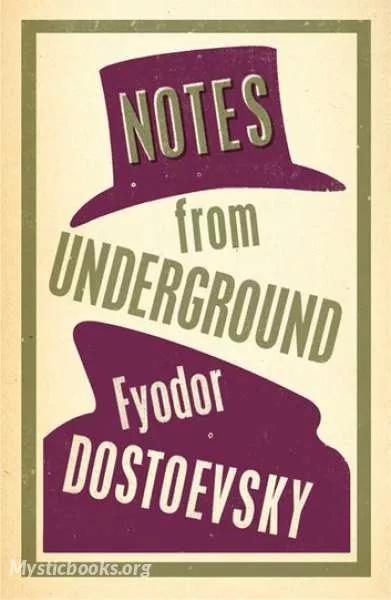
Notes from the Underground
'Notes from the Underground' Summary
Part 1: "Underground"
Serving as an introduction into the mind of the narrator, the first part of Notes from Underground is split into nine chapters:
The introduction propounds a number of riddles whose meanings are further developed as the narration continues.
Chapters 2, 3, & 4 deal with suffering and the irrational pleasure of suffering.
Chapters 5 & 6 discuss the moral and intellectual fluctuation that the narrator feels along with his conscious insecurities regarding "inertia"—inaction.
Chapters 7, 8, & 9 cover theories of reason and logic, closing with the last two chapters as a summary and transition into Part 2.
The narrator observes that utopian society removes suffering and pain, but man desires both things and needs them to be happy. He argues that removing pain and suffering in society takes away a man's freedom. He says that the cruelty of society makes human beings moan about pain only to spread their suffering to others.
Unlike most people, who typically act out of revenge because they believe justice is the end, the Underground Man is conscious of his problems and feels the desire for revenge, but he does not find it virtuous; the incongruity leads to spite towards the act itself with its concomitant circumstances. He feels that others like him exist, but he continuously concentrates on his spitefulness instead of on actions that would help him avoid the problems that torment him. The main issue for the Underground Man is that he has reached a point of ennui and inactivity. He even admits that he would rather be inactive out of laziness.
The first part also gives a harsh criticism of determinism, as well as of intellectual attempts at dictating human action and behavior by logic, which the Underground Man discusses in terms of the simple math problem: two times two makes four (cf. necessitarianism). He argues that despite humanity's attempt to create the "Crystal Palace," a reference to a famous symbol of utopianism in Nikolai Chernyshevsky's What Is to Be Done?, one cannot avoid the simple fact that anyone, at any time, can decide to act in a way that might not be considered to be in their own self-interest; some will do so simply to validate their existence and to protest and confirm that they exist as individuals. The Underground Man ridicules the type of enlightened self-interest that Chernyshevsky proposes as the foundation of Utopian society. The idea of cultural and legislative systems relying on this rational egoism is what the protagonist despises. The Underground Man embraces this ideal in praxis, and seems to blame it for his current state of unhappiness.
Book Details
Language
EnglishOriginal Language
RussianPublished In
1864Authors

Fyodor Dostoyevsky
Russia
Fyodor Mikhailovich Dostoevsky, sometimes transliterated as Dostoyevsky, was a Russian novelist, philosopher, short story writer, essayist, and journalist. Dostoevsky's literary works explore human ps...
Books by Fyodor DostoyevskyDownload eBooks
Listen/Download Audiobook
Related books

Ormond by Maria Edgeworth
Ormond is a coming-of-age novel that follows the development of the young Harry Ormond as he approaches adulthood. Influenced by the books he reads an...
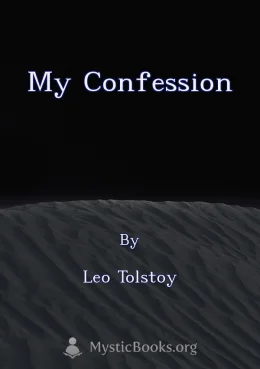
My Confession by Leo Tolstoy
Leo Tolstoy's *My Confession* is a deeply personal and introspective account of his midlife crisis. Tolstoy, renowned for his literary achievements an...

On Liberty by John Stuart Mill
On Liberty is a philosophical essay by the English philosopher John Stuart Mill. Published in 1859, it applies Mill's ethical system of utilitarianism...
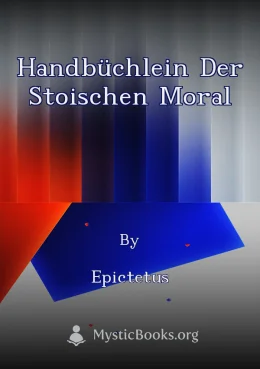
Handbüchlein der stoischen Moral by Epictetus
Encheiridion, stoische Regeln für ein zufriedenes Leben. Knapp und ausgezeichnet. Geschrieben von Epiktet (ca. 50-138). Übersetzung durch Carl Conz vo...

Dialogo dei Massimi Sistemi by Galileo Galilei
Dialogo dei Massimi Sistemi is a scientific essay written in the form of a dialogue by the Italian scientist Galileo Galilei. Originally written in It...
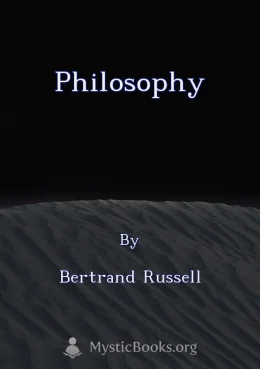
Philosophy by Bertrand Russell
Bertrand Russell's "Philosophy" is a comprehensive exploration of key philosophical concepts, presented in his characteristically lucid and engaging s...

On the Popular Judgment: That may be Right in Theory, but does not Hold Good in the Praxis by Immanuel Kant
This tripartite essay – published variously as “On the Popular Judgment” (J. Richardson trans.), “On the Old Saw” (E.B. Ashton trans.), or “On the Com...
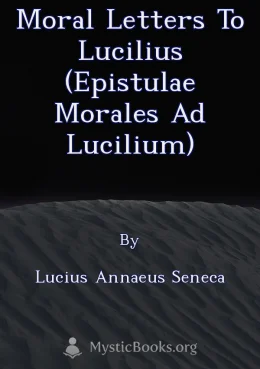
Moral letters to Lucilius (Epistulae morales ad Lucilium) by Lucius Annaeus Seneca
Seneca's *Moral Letters to Lucilius* is a collection of letters written to his friend Lucilius Junior, exploring key themes of Stoic philosophy. Sene...
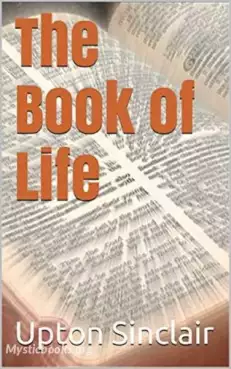
The Book of Life by Upton Sinclair by Upton Sinclair
Faith and reason, love and virtue, morality and mortality! In these two short volumes the famous novelist, essayist, and playwright, Upton Sinclair, c...

Religio Medici, Hydriotaphia and Letter to a Friend by Thomas Browne
This collection brings together three of Sir Thomas Browne's most celebrated works: *Religio Medici*, *Hydriotaphia*, and *Letter to a Friend*. Browne...
Reviews for Notes from the Underground
No reviews posted or approved, yet...